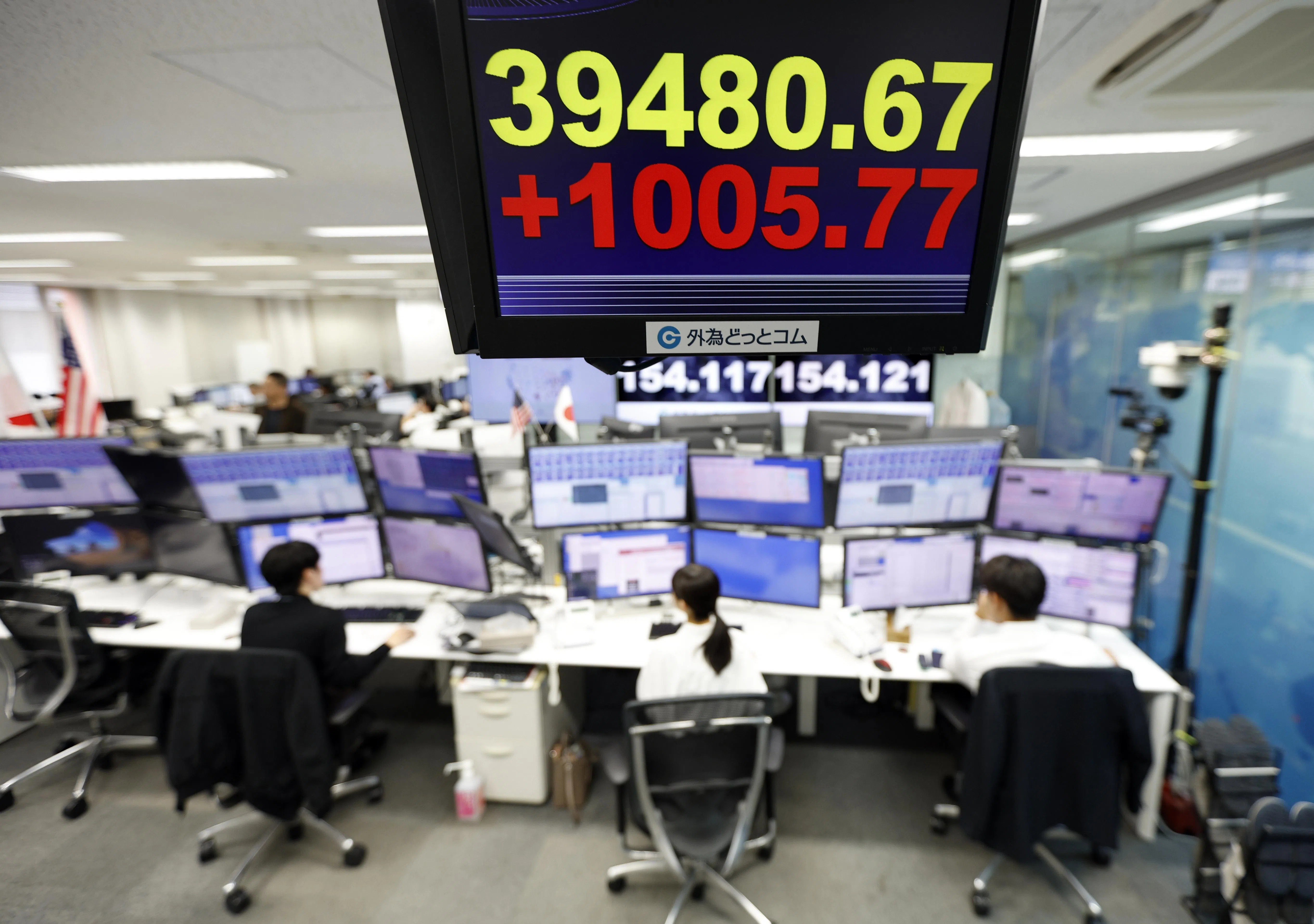BOND fund managers have so much cash, they are turning to the derivatives market to put it to work – pushing down the cost of protection against defaults close to levels that prevailed when central banks were just starting to raise interest rates.
The bets on tightening default spreads are the latest sign of the overarching optimism that has enveloped markets, where credit investors flush with cash have been buying up large amounts of new debt and pushing back the so-called maturity wall that was a major source of concern just six months ago. Money managers are using credit derivatives indexes such as the Markit CDX North American Investment Grade Index to gain the exposure they want.
“CDX is a liquid way to get credit risk when cash bonds are harder to find,” said Scott Kimball, chief investment officer at Loop Capital Asset Management. “A significant amount of the recent tightening is institutions looking to put more money to work than there are bonds available.”
A “roll” of credit default swap (CDS) contracts at the end of March should be a short-term boost for the credit derivatives index market and lead to outperformance, said Fraser Lundie, head of fixed income at Federated Hermes. The roll – a release of new indexes tracking a refreshed basket of companies – effectively resets the maturity for so-called on-the-run contracts every six months, and typically leads to an increase in the volume of trades.
“On the long side, it’s an opportunity to extend by six months and pick up extra spread,” Lundie said. “On the short side, the opposite is true; and this extra cost may psychologically weigh on some investors, reconsidering the rationale to continue holding the negative view or adjusting its size.”
Mohammed Kazmi is among the investors using the synthetic indexes to express his bullish view on the junk bond market. Instead of buying individual bonds, the portfolio manager and chief strategist at Union Bancaire Privee uses contracts on the likes of CDX.HY and iTraxx Crossover indexes.
“We like them because of their liquidity but also from a valuation perspective. You’re currently paid to be in CDS versus cash,” he said, referring to the relatively wide level of the derivatives’ spreads compared with that of an equivalent cash bond.
CDS indexes are the most liquid instruments in the entire credit market, with hundreds of billions of dollars worth of contracts changing hands every month. Wagers on tighter spreads for high-grade contracts have sent the CDX IG and iTraxx Europe indexes to almost the lowest levels since the global financial crisis.
“If you’re a fund manager and you said, ‘I thought there was going to be a recession, now it doesn’t appear there’s going to be’, you’re just a forced buyer. Maybe it’s CDX, maybe it’s individual companies,” Jeffrey Klingelhofer, co-head of investments at Thornburg Investment Management, said of the market. “You feel like you can’t miss out on it any more.” Thornburg does not currently trade CDX.
To be sure, the broader tightening masks some fragmentation in parts of the market. Euro-denominated bonds issued from companies rated “CCC” and below, which are at high risk of going bust, have missed out on the general rally. In addition, an S&P Global Ratings worldwide tracker of corporate failures in 2024 reached the highest year-to-date level since 2009, the ratings company said in a recent release.
Bank of America strategists Ioannis Angelakis and Barnaby Martin last week recommended using the CDS options “as a way to insulate from the notable market euphoria”, especially in high-grade credit.
Still, calls for wider default swap spreads in recent weeks have proven misplaced as credit kept rallying regardless. And with traders having already moderated their expectations of rate cuts this year, there is no obvious bogeyman left.
“The question for me is how much widening can you get while waiting to be invested?” Kazmi said. “What are the triggers for very large widening? I don’t see them on the horizon.” BLOOMBERG






